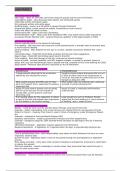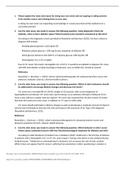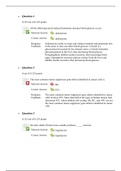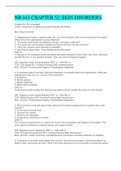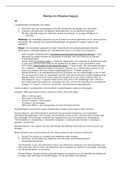Summary
OCR Paper 2 Law Revision SUMMARY
- Module
- A2 Unit G157 - Law of Torts
- Institution
- OCR
Hiya! These are my summary notes for OCR Law Paper 2! Every single topic has been summarised and have been given full marks. All information may not need to be included within an exam question, but the simple bullet points ensured that I achieved an A* overall in my Y13 mock exams! Having just sat ...
[Show more]
